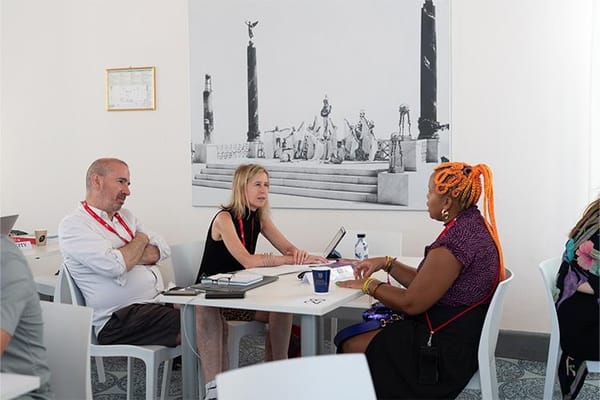Verizon, Wanda & LeEco: What’s Behind This Week’s Big Acquisitions?
The relentless pursuit of scale in users bases, data and digital advertising was the driving force in the Verizon, Wanda and LeEco acquisitions that made headlines this week.

Another week, another trio of big deals. As the world goes mobile and social, it seems the only way to succeed is by having a massive user base and access to big data – at least if you want a piece of the digital advertising pie that is 85% controlled by Google and Facebook.
And this is what you’re up against in the digital economy: this week we’ve learned that Facebook has 1.7 billion monthly active users, Apple has sold over a billion iPhones and Google parent Alphabet’s net income reached $4.9bn in the second quarter of 2016, up from $3.9bn in the same quarter last year. You can’t just be big to succeed; you have to be the biggest.
Unless you’re a Chinese company of course, and then you have to worry about a whole different set of digital giants: Baidu, Alibaba and Tencent. This week’s acquisitions activity is all related to this relentless pursuit of scale:
Verizon acquiring Yahoo for $4.8bn
Verizon is facing saturation in the traditional telecoms business and wants to grow revenues in the digital content and advertising on mobile business, currently dominated by Google and Facebook (both of which have grown huge by serving up other people’s content). Both Yahoo and AOL, which Verizon acquired for $4.4bn last year, have their own digital content as well as advertising technology.
On the content side Yahoo has strengths in search, news, finance, sports, video and email, while AOL owns assets including The Huffington Post, TechCrunch and Engadget. Both also have digital ad technology – Yahoo’s tools include programmatic ad platform Brightroll, mobile apps analytics service Flurry and native and search advertising solution Gemini.
Verizon is hoping the newly combined entity will give it the kind of scale it needs to become a strong third player behind Google and Facebook for digital revenues. Verizon/AOL combined currently only account for 1.8% of the $69bn US digital ad market, while Yahoo holds about 3.4%. Yahoo may have missed the shift away from web portals towards social networks and apps, but it still has reach, with one billion monthly active users.
Wanda Cinemas acquisition of Mtime for $350m
This was a deal all about data and reach – combining Wanda Cinemas’ membership and user base with that of Mtime, China’s leading movie portal and online ticketing platform, creates an entity with a reach of 220 million total active users.
Retaining its own brand, Mtime will now oversee all movie-related media, technical, marketing, big data and merchandising for Wanda, which first made a move on the portal by acquiring a 20% stake last year.
Mtime is already the first port of call for the Hollywood studios to market their films in China, and with Wanda’s backing, will ramp up marketing activities through apps, marketing events, live feed premieres and Mtime merchandising kiosks in brick-and-mortar cinemas.
The two companies claim the acquisition will also impact how the movie industry collects data. Last year, Mtime launched the Mtime PRO box office data tool, which following the Wanda acquisition will be able to link to data systems covering over 95% of all cinemas in China. Good news for the Hollywood studios: there will also be an English-language version of the app.
LeEco acquiring Vizio for $2bn
Not so much a deal about data as an ambitious play by a Chinese tech company to enter the US hardware business by acquiring one of the biggest TV makers. But the deal does also involve a data component.
LeEco, which claims 730 million monthly active users, started out as a streaming video company, but quickly moved into the hardware side of the business with smartphones, smart TVs, VR headsets, smart bicycles and even electric cars (the latter through tie-ups with Faraday Future and Aston Martin). The company is also heavily involved in film and TV production through Le Vision Pictures, which co-financed Expendables 2 and Zhang Yimou’s upcoming Matt Damon-starrer The Great Wall.
After opening flashy new offices in Silicon Valley, the company is now moving aggressively into the US market by selling smartphones and other devices. As in China, the idea is that these devices will be packaged with LeEco’s content, apps and cloud services ecosystem (hence the 'Eco' in the company’s name).
LeEco, which is also expanding into India, usually sells its products online. But the Vizio acquisition may help it sell through brick-and-mortar stores, which is more important for the US market.
And here’s the data component – LeEco has also acquired 49% of Vizio’s data business Inscape, which provides content recognition and ad targeting on Vizio TV sets.
LeEco founder and CEO Jia Yueting once compared Apple to Hitler and recently said the company is outdated and losing momentum in China. Although it has a valuation of around $14bn on the Shenzhen stock exchange, LeEco appears to be trying to do everything at once and may be over-reaching itself in the notoriously expensive self-driving vehicles business, so Tim Cook probably doesn’t need to quake in his shoes just yet.




